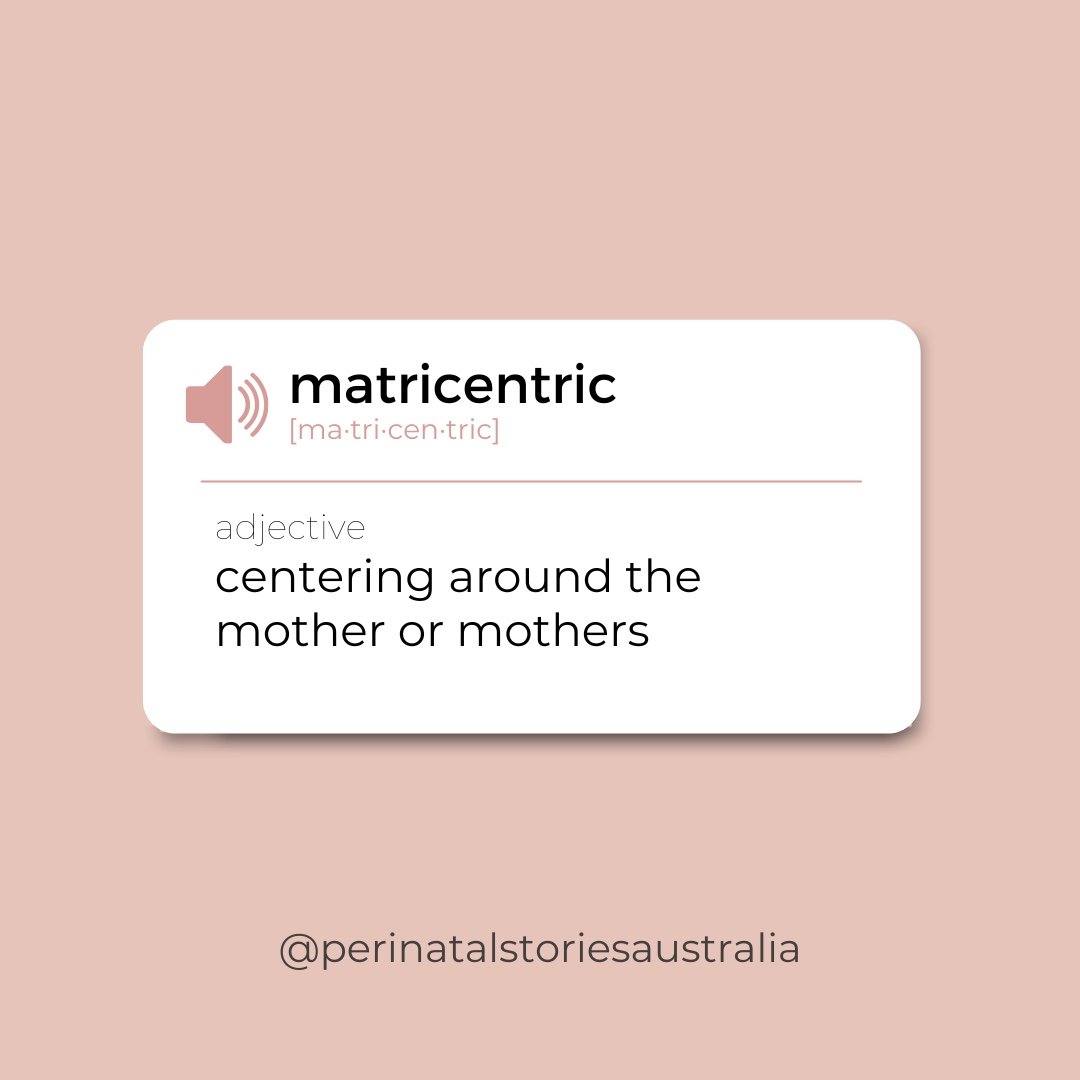Why is Mother-Centric Care Important?
Share
Have you heard of the word matricentric? Maybe not. That’s okay - it’s not exactly a word that pops up in everyday conversation.
But I’m hoping you’ve come across the term mother-centric, because it matters. A lot. Well, I think it matters - especially when we’re talking about perinatal mental health, support systems, and the way our society shows up (or doesn’t) for mothers.
Matricentric care simply means care that centres mothers - their needs, their identities, their wellbeing - not just during pregnancy, but throughout the entire transition into motherhood. And in a world that often overlooks the mother to focus on the baby, this shift in perspective is not just important - it’s essential.
What is matricentric care?
While it’s not a word many of us are familiar with, I believe it’s an approach that deserves way more attention in conversations around pregnancy and postpartum care.
So, what does matricentric actually mean?
The Free Dictionary defines it simply as:
"centering around the mother or mothers”
But scholar, Professor Andrea O’Reilly takes it deeper in her 2016 book Matricentric Feminism: Theory, Activism, and Practice, where she explains that matricentric feminism:
"begins with the mother and takes seriously the work of mothers."
And I couldn’t love a definition more.
Mother-centric care, or matricentric care, is therefore care from health and support providers who value the health, decisions, and needs of the mother.
Contrary to what some might have us believe, mother-centric does NOT mean we don’t value what’s best for our child/children.
To me, it simply means we aren’t putting the mother last.
What does mother-centric care actually look like?
Mother-centric care can look like:
supporting a mother’s birth choices
supporting a mother’s feeding choices
supporting a mother’s sleeping choices
supporting a mother’s choices about day care or returning to the workforce
providing advice and recommendations that enable a mother to prioritise her own health
so, it’s pretty much ANY care that does not shame the mother for making a decision that considers her own needs
Why is mother-centric care important?
When it comes to perinatal care, especially in the context of perinatal mental ill health, mother-centric care is essential.
What’s best for the mother, for each mother, is different. Our care, health, and support providers therefore need to accommodate these differences.
Generic advice about doing what’s “best” for our baby can leave many mothers feeling ashamed, or as though they’re failing. It can also force them to continuously subvert their own needs and health.
From personal experience, I know that non-mother-centric advice can be detrimental to both the physical health and mental health of a mother.
Mother-centric care matters because mothers matter, because our health matters, because we matter just as much as our children, because there is no single way to raise a child or to be a mother.
More importantly, mother-centric care matters because holding mothers hostage to the belief that we must mother in a specific way to be a ‘good mother’ and to ‘do what’s best for the children’ is poison to an authentic mother-baby dyad and to the mental health of all mothers.
When Mothers Are Overlooked: The Cost of Not Receiving Mother-Centric Care
When care during pregnancy and postpartum doesn’t centre the mother, the consequences can be profound. Many women report feeling dismissed, unheard, or invisible in their own healthcare experiences - especially when their concerns are downplayed or their wellbeing is treated as secondary to the baby’s. This can lead to increased stress, anxiety, trauma, and even delays in seeking care.
When a mother’s needs are consistently sidelined, it sends a harmful message: that her health and autonomy matter less.
Every mother deserves to feel seen, supported, and respected, not as an afterthought - but as a person who matters, and whose wellbeing benefits the whole family.
Centering Mothers Benefits Everyone
At the end of the day, mother-centric care isn’t about choosing mothers over their babies. It’s about recognising that mothers matter too. When we truly centre the needs, voices, and wellbeing of mothers, we create healthier outcomes for families as a whole. Your experience, your body, your mental health, and your story are important. You deserve care that sees you.
Did you receive mother-centric care in pregnancy and postpartum? Follow Perinatal Stories Australia on Instagram to let us know!
Follow Perinatal Stories Australia on Instagram for more informative maternal mental health content


